British Council partners with GoSL on career guidance in schools
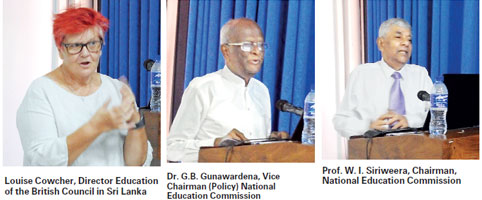 The British Council of Sri Lanka announced this week that it continues to strengthen its longstanding partnership with the Government of Sri Lanka in education and skills development. The British Council has been working for nearly seventy years with the Government of Sri Lanka across a range of ministries and departments. In 2017, British Council’s engagement was reframed as its flagship programme TRANSFORM, as encapsulated under the Memorandum of Understanding with the Ministry of Education. “Education reform is a major area of focus for government, with many partners working in the area. We want to make a meaningful contribution,” says Louise Cowcher, Director Education of the British Council in Sri Lanka. “Asking ourselves what a strong education system would really look like, who it would cater to and why, proved to be important in designing a strong programme.”
The British Council of Sri Lanka announced this week that it continues to strengthen its longstanding partnership with the Government of Sri Lanka in education and skills development. The British Council has been working for nearly seventy years with the Government of Sri Lanka across a range of ministries and departments. In 2017, British Council’s engagement was reframed as its flagship programme TRANSFORM, as encapsulated under the Memorandum of Understanding with the Ministry of Education. “Education reform is a major area of focus for government, with many partners working in the area. We want to make a meaningful contribution,” says Louise Cowcher, Director Education of the British Council in Sri Lanka. “Asking ourselves what a strong education system would really look like, who it would cater to and why, proved to be important in designing a strong programme.”
The answer to these questions was simple but revealing; a strong education system would create access for all young people to learning opportunities, provided by a fit for purpose and relevant education system, allowing them to contribute to Sri Lanka’s economic and social development, while also achieving their full potential and meeting personal aspirations. To achieve this, TRANSFORM tackles: professionalization of the education cadre; systemic reform and quality assurance; the transition from education to employment; research, evaluation and learning; and effective communication. The programme framework pulls British Council’s extensive work in the areas of secondary and higher education, skills and English language teacher education. In 2017, TRANSFORM began delivering on the results area of professionalization under the Improving Teacher Education in Sri Lanka project in collaboration with the Ministry of Education.
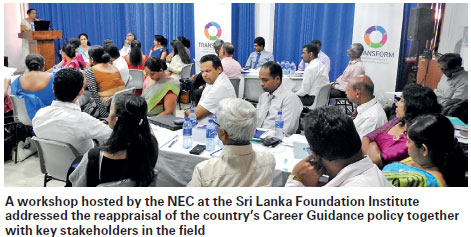 The programme has now turned its focus on the results area of Transitions, which explores the move from education to employment. The Careers Guidance project aims to support the development of a robust system that will allow young people to make informed choices about their future education and work, allowing them to contribute to Sri Lanka’s fasttracked economic growth. This will certainly help young people gain employment and job satisfaction. Access to a competent workforce is also a priority for Sri Lanka in fostering private sector led growth, attracting foreign investment and becoming competitive in global markets. Career guidance is an essential tool that can be embedded in school programmes and practices, guiding young people to make informed, non-conventional and eventually profitable choices about their career trajectory after school.
The programme has now turned its focus on the results area of Transitions, which explores the move from education to employment. The Careers Guidance project aims to support the development of a robust system that will allow young people to make informed choices about their future education and work, allowing them to contribute to Sri Lanka’s fasttracked economic growth. This will certainly help young people gain employment and job satisfaction. Access to a competent workforce is also a priority for Sri Lanka in fostering private sector led growth, attracting foreign investment and becoming competitive in global markets. Career guidance is an essential tool that can be embedded in school programmes and practices, guiding young people to make informed, non-conventional and eventually profitable choices about their career trajectory after school.
TRANSFORM will engage with all key stakeholders from both government and the private sector to ensure the formation of a skilled and competent workforce. British Council has been invited by the National Education Commission which is the policy making body in all aspects of education in Sri Lanka to collaborate on the re-appraisal of the existing Career Guidance policy. At a meeting convened by NEC with the support of the British Council on 24 January 2019, key stakeholders were brought together from a wider range of government departments, education providers and employers’ representatives to discuss current practices in the implementation of the career guidance policy, its challenges and possible ways forward. Speaking at the event, Dr. G.B. Gunawardena, Vice Chairman (Policy) National Education Commission said: “The need for a re-appraisal of the Career Guidance Policy at school level demands an analysis of the present policy context and the situational context to resolve the current issues and concerns that need to be addressed in updating the current policy.
The task of National Education Commission is to work towards a coordinated effort by all agencies engaged in Career Guidance Programmes at school level to develop a comprehensive policy on career guidance at school level.” Key issues identified by Dr. Gunawardena include the need for strong policy; effective and systematic organisational structure for implementation; a qualified cadre of professionals; the role of parents in decision making; co-ordination between agencies. The participants represented the major stakeholders in the field of career guidance - National Career Guidance and Counseling Centre, Ministry of Education, Tertiary and Vocational Education Commission, National Institute of Education, Department of Manpower and Employment, National Youth Services Council, National Apprentice and Industrial Authority, National Youth Corps, Sri Lanka Foundation, Sri Jayawardenapura University, University of Colombo, The Organization of Professional Associations of Sri Lanka, Sri Lanka Institute of Career Guidance, Assistant Directors of Education, education advisors, principals and teachers of schools. Prof. W. I. Siriweera, Chairman, National Education Commission, commented: “The development of man-power resources required for socio-economic growth is a prime concern of all governments. The British Council has contributed to the enhancement of human resources in the fields of General, Vocational and Higher Education in Sri Lanka. This year, the British Council has embarked on a project related to school-based career development in Sri Lanka with the collaboration of the National Education Commission which is the Policy making body in all aspects of education in our country. As a preliminary step a very successful one-day workshop was held at the Sri Lanka Foundation Institute bringing most of the stakeholders together on 24th January.”
































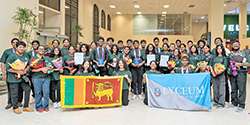



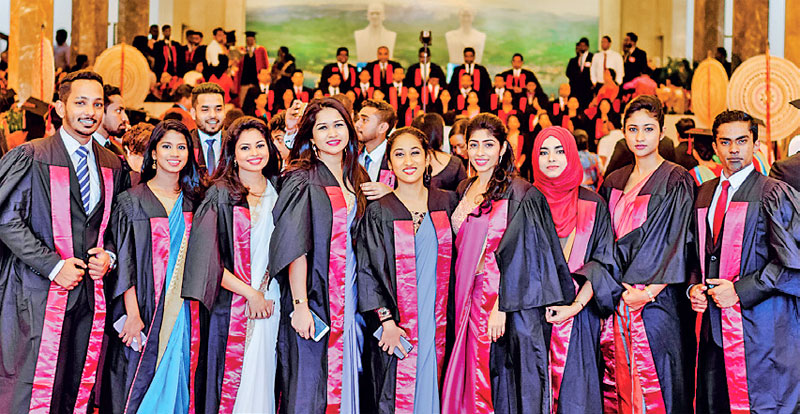


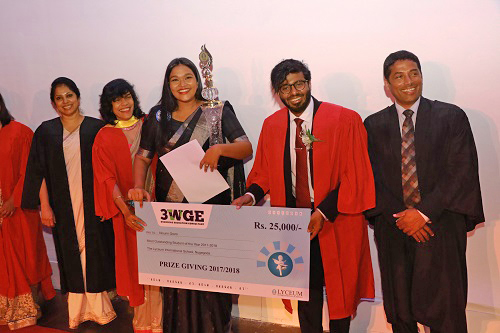

.jpg)
.jpg)

.jpg)
.jpg)
.jpg)
